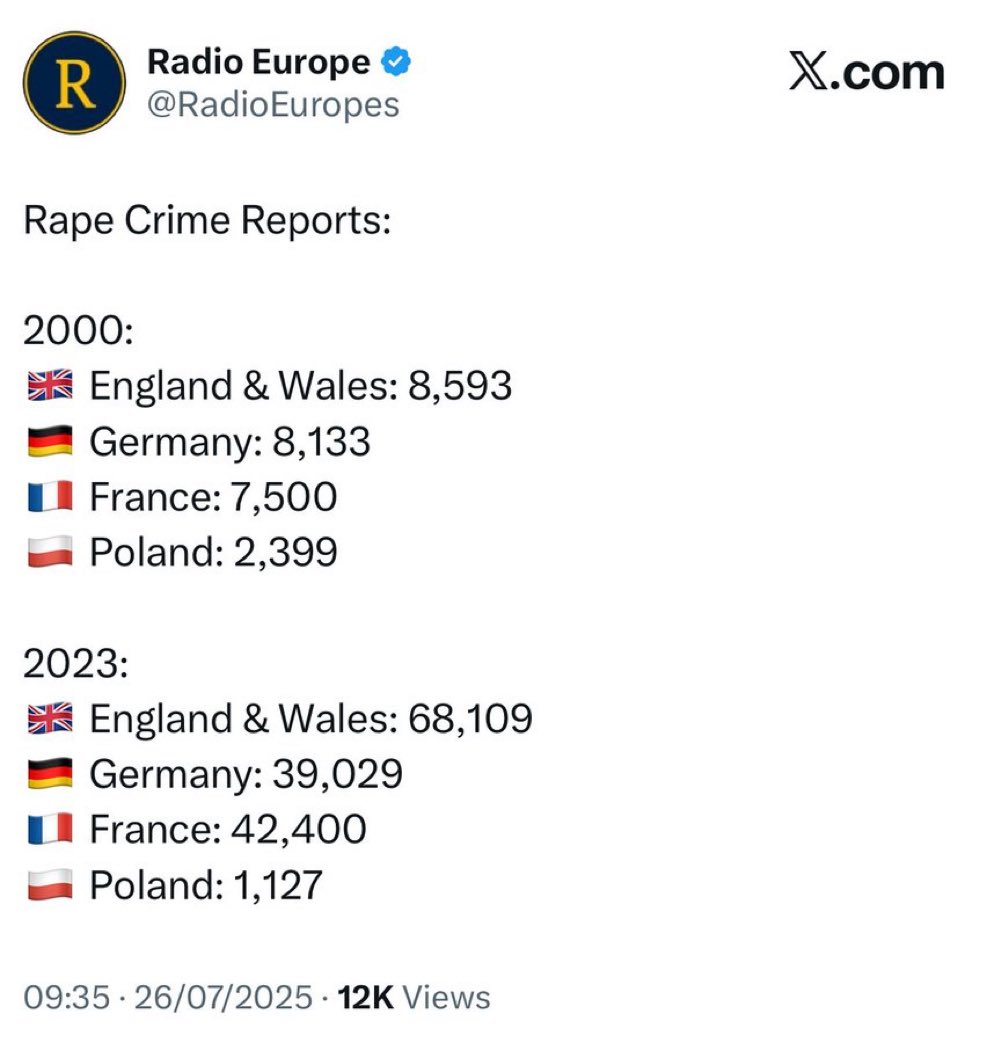“Why are they allowing the rape of Europe?”
Why are they allowing the rape of Europe? https://t.co/IJnBFMx2mD
— Elon Musk (@elonmusk) August 25, 2025
Elon Musk’s post references a 2025 Radio Europe report showing a dramatic rise in reported rapes (e.g., England & Wales from 8,593 to 68,109, Germany from 8,133 to 39,029), suggesting a correlation with demographic changes, notably immigration, as implied by the contrasting Warsaw and London images in the thread.
Eurostat data from 2015 indicates England & Wales already led in recorded rapes (35,800), with Sweden showing the highest per capita rate (57 per 100,000), supporting the trend of increased reporting, though a 2022 EU demographic study highlights uneven population shifts, with some regions seeing growth due to migration, potentially influencing crime statistics.
A 2019 study in the Journal of Scandinavian Studies in Criminology and Crime Prevention found improved victim reporting and police training account for up to 40% of rising rape statistics in Europe, challenging the narrative of a proportional crime surge and suggesting Musk’s question may oversimplify complex social and legal factors.
Relevant Web Pages
AN INDEPENDENT FREE PRESS SINCE 2012
Please Donate to TheWatchTowers.
I am making a public appeal for your support. If you have enjoyed anything we have published since 2012 please consider chipping in a little something. https://t.co/sViue9iIHj pic.twitter.com/hTUuPH2GWm
— THEWATCHTOWERS (@THEWATCHTOWERS) August 19, 2025

